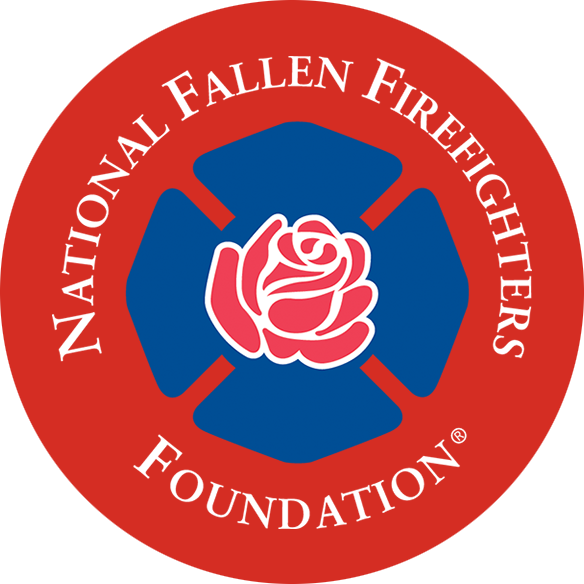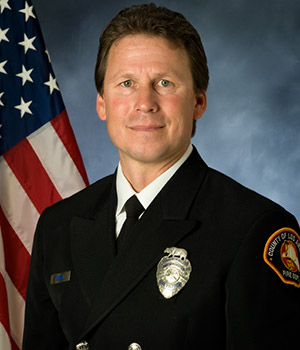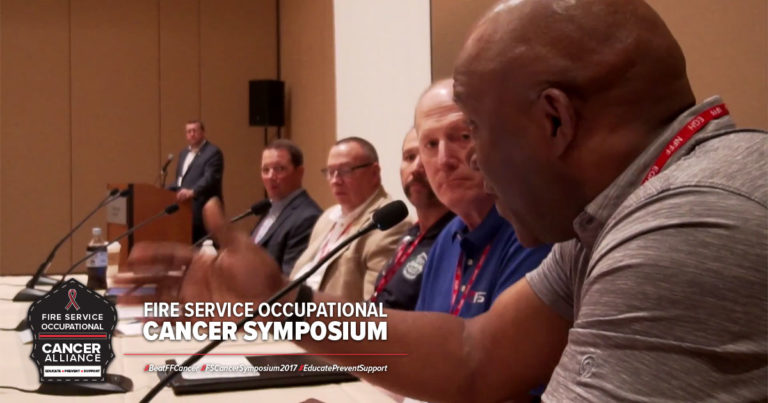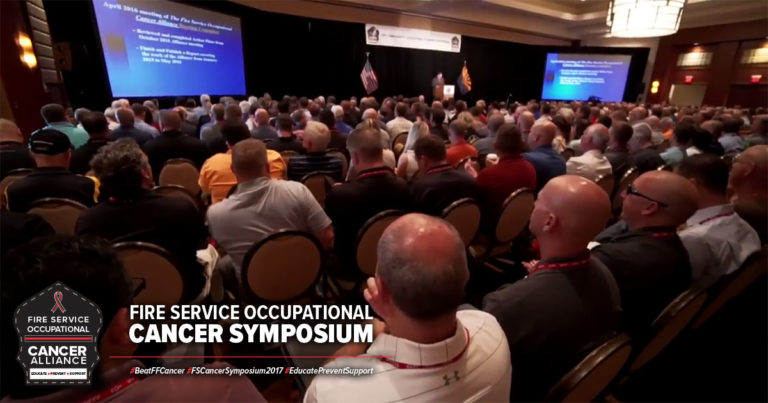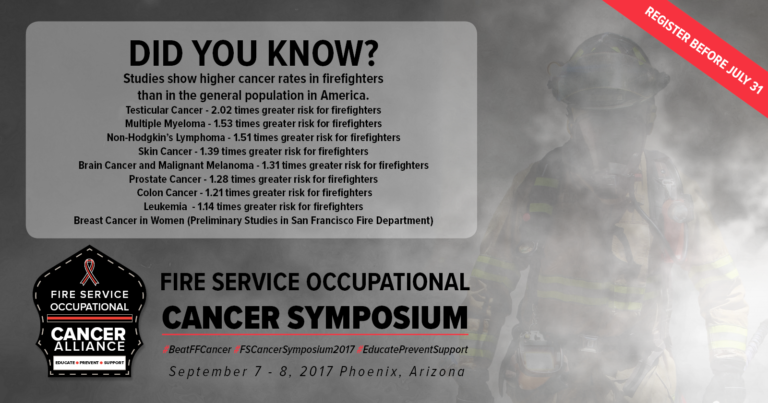
As a firefighter and paramedic with the Los Angeles County Fire Department, Michael Dubron made health and fitness a priority. He believed that to fulfill his job responsibilities and serve others, he must first take care of himself. When Dubron received his diagnosis of Stage 4 colorectal cancer in 2003 and given one-to-three years to survive, he was stunned and in a state of disbelief.
“I remember thinking, ‘I would change anything not to have this diagnosis,’” Dubron said. “No one ever takes a class called Cancer 101 then walks into their doctor’s office to hear a cancer diagnosis and is prepared for what to do.”
Following his surgery to completely remove the tumor at USC Norris, Dubron spent nine months recovering. During that time, he found other firefighters from his department who were cancer survivors and were more than willing to help him find valuable resources and navigate this new journey.
“The benefit to that is most firefighters are such alphas, we don’t want to seek assistance. But becoming a mentor is a great way to extend help. It’s a great benefit to your life as well,” he explained.
Inspired by the level of assistance he received from his fire service family, Dubron went on to found the Firefighter Cancer Support Network (FCSN). What began as a local database for firefighters diagnosed with cancer to find one another soon grew into a national, and now international, organization. FCSN created a Tool Box of resources for newly diagnosed firefighters and their families to help them prepare for talking with their doctors about the diagnosis, treatments and recovery.
To help inform more firefighters about what they can do to better educate themselves about preventing cancer and supporting others battling this insidious disease, Dubron will lead two workshops at the Fire Service Occupational Cancer Symposium in Phoenix, AZ, September 7 and 8. The Symposium is sponsored by the Fire Service Occupational Cancer Alliance, a group of leading fire service organizations committed to addressing this burgeoning issue among firefighters.
Currently, the number of firefighters coping with cancer in the United States alone is unclear. Many are not diagnosed until after they retire, so the direct link to firefighting may be underestimated. Furthermore, doctors may not recognize a connection between the disease and patients who are volunteer, military, wildland, or contract firefighters.
The fact is all firefighters face greater risks of exposure to toxins now than ever before. In the past 40 years, synthetic building materials, such as complex plastics, lightweight foams, industrial polymers, and chemical coatings, have replaced woods, textiles, metals, and glass. As a result, fires burn faster and hotter than ever before, and generate larger quantities of thick, toxic smoke. Additionally, firefighters now respond to a wider variety of incidents, including hazardous spills.
Dubron believes the FCSN and other organizations must now go beyond offering support for those diagnosed with cancer to educating all firefighters about prevention. He would like to see every fire service academy providing education and awareness as part of their curricula within the next 10 years.
“We need to make cancer a primary focus in the fire service. Not just something that is a subtitled subject,” said Dubron. “We need to take a proactive approach not a reactive approach. It’s a lot less expensive to invest in extra turn out gear than to pay for an individual’s medical expenses.”
Over 500 fire service members from the U.S., Canada, and Europe are registered for the symposium including fire service leadership, industry representatives, researchers, and cancer survivors. Presentations and workshops will cover current research, prevention strategies, presumptive legislation, available benefits, and other relevant topics.
About the Fire Service Occupational Cancer Alliance
The dramatic increase in the incidence of occupational cancers is one of the most critical problems facing the fire service today. To address this issue, the National Fallen Firefighters Foundation has, since January 2015, coordinated the Fire Service Occupational Cancer Alliance (FSOCA), a collaborative group of fire service leaders, constituency organization representatives, occupational medicine practitioners, and academic and corporate researchers, all united to advance the common goals of raising awareness and preventing occupational cancers among the nations firefighters. The Alliance has developed a comprehensive action plan to address the disease at the national level, including the recommendation to host a Symposium focused exclusively on fire service occupational cancers. The Alliance will continue to be guided by its members and steering committee.
Related:
[display-posts category=”cancer-symposium-2017″ posts_per_page=”100″ wrapper=”ul”]
